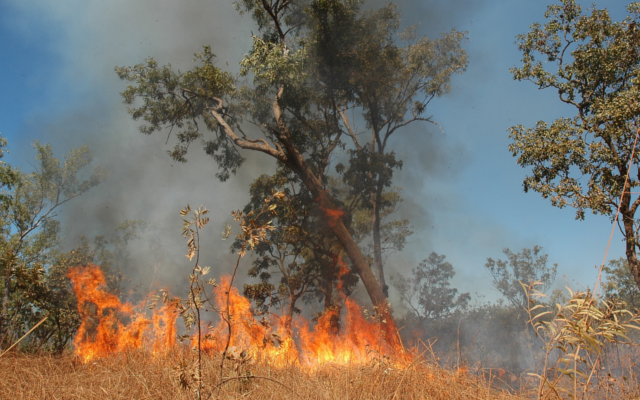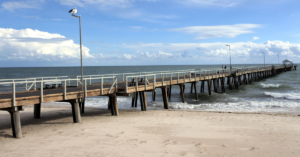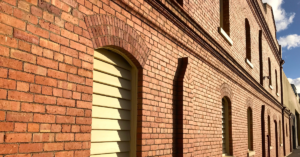Before we even begin, there are a couple of things we need to say….
- Get all of your information from the local and state fire services. They have the best tools and information to help you, including checklists and fire plans.
- Being prepared is the key. You do not want a fire to be approaching and you don’t have the items you need… Check out our article on this at: https://www.guttervac.com.au/?p=10333
- LEAVING EARLY is always your SAFEST OPTION. Don’t be a hero, leave early and protect your family.
The reality is that a bushfire can be a terrifying experience and will drain you emotionally, mentally and physically fast. Bushfires are usually accompanied with strong winds, heat, heavy smoke. This can tire you quickly, smoke will sting your eyes and it will be hard to breathe. The sound of a bushfire is incredible with a loud roaring sound. You can have embers coming down like rain and spot fires will occur. Remember also that your power and water may be cut off so you it could be dark, noisy and you will be isolated.
Remember you are not the only person to consider so even though you may believe that you can cope with the above situation, remember that others – especially children – will not cope so leaving early will be a better plan than staying to defend your home.
Being prepared for a bushfire is key, even if you have a plan to leave early, because sometimes fires are unpredictable so even if you intention is to leave, always be prepared in case leaving is no longer an option for you.
Have a fire preparation plan is a must so simply go to your state fire service website and they have all the plans and checklists for you to go through. Do this BEFORE you need it. Make sure you have plan and that you communicate that plan to everyone in your home. Speak to your neighbours, communicate your plan to them and how you can work together in the event of a fire if possible.
If a fire is approaching and you cannot leave your home then here are some of the basic things to do to help protect your family.
- Stay informed. Have a portable, battery operated radio and take all emergency services advice.
- Keep up to date with where the fire alerts are in your area and at what level
- Keep all emergency numbers and website information in a readily available location
- Make sure you drink lots of water so that you stay hydrated.
- Turn off gas mains or disconnect gas bottles
- Move any flammable items away from your home
- Block down pipes (simply use a sock full of sand or dirt) and then fill your gutters with water.
- Don’t get on the roof to do this, but hose down the roof with water – do this from the ground.
- Remember embers can be blown to your property well before the fire front arrives, so make sure you have buckets of water and mops ready to put out embers and spot fires
- Have shovels or rakes available to cover fires with dirt or to move spot fires away
- When the fire is approaching, wet down the side of the house (and the garden) that is facing the fire
- Move any of your firefighting equipment to a place where it will not be burnt or caught in a place that you cannot access.
- Close all windows, doors and vents
- Fill baths, sinks, buckets and bins with water
- Confine your pets into a single room – they will be scared too so ensure the room is secure and they cannot escape
- Put a ladder next to your man hole so if you need to access the ceiling cavity to put out spot fires, you are ready.
- Soak towels and rugs and lay them across external doorways
- Move all furniture away from windows
- Ensure that everyone is dressed in protective clothing
- Long heavy cotton pants such as denim jeans
- Long sleeve shirt – made of natural fibres such as cotton or wool
- Thick woollen or cotton socks
- Leather books or shoes, work boots
- If you are going outside then a wide brimmed hat to protect from dropping embers landing on your head or rolling down your back
- Googles to protect against smoke, embers and debris
- Gloves that will protect your hands from radiant heat, embers and debris
- A mask or cloth to cover nose and mouth so you don’t inhale smoke, ash and embers
- For those inside, woollen rugs and blankets are also a good idea for protection along with wet towels
- If flames or fire front is now on top of you or the heat is unbearable, move inside until the fire has passed
- Make sure you continue to patrol the inside of your home looking for sparks and embers
- Shelter in a room on the opposite side of the house to the approaching fire and ensure you have a clear access to an exit
- Once the fire has passed, check the inside and outside for fires including in the ceiling cavity, under the house, decks and stairs
- Contact relatives or a friend to let them know you are safe
- If possible, check in with your neighbours and make sure they are ok
- Continue to patrol your home for several house to extinguish any small fires or burning embers
Remember, the safest option is to leave early. The emergency services give these warnings with plenty of notice, so don’t ignore them, act on them. Although you may believe you can defend your home, bushfires are unpredictable and more powerful than many people realise if they have never gone through this situation. You want to leave early, but hopefully, this list has given you some information in the event that you need it.
As we said, the best source of your information is your state fire service.
We take safety seriously, but we also take bushfires seriously. One of the major to do items that every fire service will tell you is to have your gutters cleaned.
EVERY year (because every year there is a devastating fire in Australia, just some years there are more than others) we have customers call us after a bushfire to say thank you because their home as made it through the fires and the fires services have told them that this was because they had a well maintained, fire prepared property and they have clean gutters. It is amazing how many times we hear this, so this year, as we do every year, we want to continue to spread the message to be prepared for fires and leaving early is the safest option.










